#Catechesis and Learning:
Explore tagged Tumblr posts
Text
Embarking on a Sacred Journey: What is the Catholic RCIA Course all About?
The Rite of Christian Initiation of Adults (RCIA) stands as a sacred and transformative journey within the Catholic Church, welcoming individuals into the rich tapestry of Catholicism. It is offered worldwide so you can journey with other enquirers. I have just started this course online and am excited about exploring the Catholic Church. I have completed the first lesson and have experienced…
#Catechesis and Learning:#catholic#catholic church#Catholic RCIA Course#catholic reflections#journey home#ntegration into the Faith Community#Ongoing Formation and Support#protestant to catholic#protestant to catholic conversion#rcia#Sacred Journey:#Spiritual Formation and Prayer#The Sacraments of Initiation:
0 notes
Text
Homily Notes
Are you prepared to leave everything for God? Do you love anything more than God? What amazing life will you miss out on if you don’t follow Jesus?
0 notes
Text

While Matthew introduces the Our Father with a short catechesis on prayer in general, we find it in a different context in Luke — namely, Jesus' journey to Jerusalem. Luke prefaces the Lord's Prayer with the following remark: Jesus "was praying in a certain place, and when he ceased, one of his disciples said to him, 'Lord, teach us to pray . . .'" (Lk 11:1). The context, then, is that the disciples see Jesus praying and it awakens in them the wish to learn from him how to pray. This is typical for Luke, who assigns a very special place in his Gospel to Jesus' prayer. Jesus' entire ministry arises from his prayer, and is sustained by it. Essential events in the course of his journey, in which his mystery is gradually unveiled, appear in this light as prayer events. Peter's confession that Jesus is the Holy One of God is connected with encountering Jesus at prayer (cf. Lk 9:18ff.); the Transfiguration of Jesus is a prayer event (cf. Lk 9:28f.). The fact that Luke places the Our Father in the context of Jesus' own praying is therefore significant. Jesus thereby involves us in his own prayer; he leads us into the interior dialogue of triune love; he draws our human hardships into God's heart, as it were. This also means, however, that the words of the Our Father are signposts to interior prayer, they provide a basic direction for our being, and they aim to configure us to the image of the Son. The meaning of the Our Father goes much further from the mere provision of a prayer text. It aims to form our being, to train us in the inner attitude of Jesus (cf. Phil 2:5). This has two different implications for our interpretation of the Our Father. First of all, it is important to listen as accurately as possible to Jesus' words as transmitted in Scripture. We must strive to recognize the thoughts Jesus wished to pass on to us in these words. But we must also keep in mind that the Our Father originates from his own praying, from the Son's dialogue with the Father. This means that it reaches down into depths far beyond words. It embraces the whole compass of man's being in all ages and can therefore never be fully fathomed by purely historical exegesis, however important it may be.
Pope Benedict XVI (Jesus of Nazareth: From the Baptism in the Jordan to the Transfiguration, pages 132-133), trans. Adrian Walker
#Christianity#Catholicism#Jesus Christ#prayer#Gospel of Luke#The Lord's Prayer#Pope Benedict#God the Father
8 notes
·
View notes
Text
“First of all, to start anew from Christ means being close to him, being close to Jesus Jesus stresses the importance of this with the disciples at the Last Supper, as he prepared to give us his own greatest gift of love, his sacrifice on the Cross. Jesus uses the image of the vine and the branches and says: Abide in my love, remain attached to me, as the branch is attached to the vine. If we are joined to him, then we are able to bear fruit. This is what it means to be close to Christ. Abide in Jesus! This means remaining attached to him, in him, with him, talking to him. Abide in Jesus!
The first thing for a disciple is to be with the Master, to listen to him and to learn from him. This is always true, and it is true at every moment of our lives. I remember, in the diocese, the other diocese I had first, how I would often see catechists finish their training courses and say: “I have the title of catechist!” This means nothing, you have nothing, you took a little journey. What good will it do you? But one thing is true. Being a catechist is not a title, it is an attitude: abiding with him, and it lasts for a lifetime! It means abiding in the Lord’s presence and letting ourselves be led by him. I ask you: How do you abide in the presence of the Lord? When you visit the Lord, when you look at the tabernacle, what do you do? Without speaking… “But I speak, I talk, I think, I meditate, I listen…” Very good! But do you let yourself be looked at by the Lord? Letting ourselves be gazed upon by the Lord. He looks at us and this is itself a way of praying. Do you yourselves be gazed upon by the Lord? But how do you do this? You look at the tabernacle and you let yourselves be looked at… it is simple! “It is a bit boring, I fall asleep”. Fall asleep then, sleep! He is still looking at you. But know for sure that he is looking at you! This is much more important than having the title of catechist. It is part of “being” a catechist. This warms the heart, igniting the fire of friendship with the Lord, making you feel that he truly sees you, that he is close to you and loves you.”
-Pope Francis, TO PARTICIPANTS IN THE PILGRIMAGE OF CATECHISTS ON THE OCCASION OF THE YEAR OF FAITH AND OF THE INTERNATIONAL CONGRESS ON CATECHESIS, Paul VI Audience Hall, 27 September 2013
3 notes
·
View notes
Note
Will only Catholics get into Heaven?
A man died, and at the pearly gates St. Peter asked him, “Name?” “John Smith.” “Religion?” Methodist.” St. Peter looked at his list and said “Okay, you’re in room 24, but be very, very quiet as you pass room 6.” Another man died, and St. Peter asked the same questions. “Name?” “Jack Smitt.” “Religion?” “Baptist.” St. Peter looked at his list and said “Okay, you’re in room 17, but be very, very quiet as you pass room 6.” Yet another man died, and St. Peter asked the same questions. “Name?” “Joe Schmidt.” “Religion?” “Jewish.” “Okay, you’re in room 10, but be very, very quiet as you pass room 6.” Joe hesitated. “Excuse me, I hope you don’t mind me asking. I can understand there being different rooms for different religions, but why do you need me to be quiet when I pass Room 6?” “Not at all,” St. Peter said, “You see, the Catholics are in room 6 and they think they’re the only ones here.”
Anyway. The doctrine “Nulla Salus Extra Ecclesiam” doesn’t mean that only Catholics will enter heaven. What it does mean is that the Catholic Church, as the body of Christ, is the way in which we are meant to enter Heaven. The church provides the sacraments of baptism, reconciliation, and the Eucharist, all three of which Jesus says are necessary for salvation: Mark 16:6, Luke 13:3, John 6:54, for starters. The way we approach Christ (the only way to the Father) is through the Catholic Church.
If you haven’t read The Last Battle, by C.S. Lewis, you should, you’re missing out, but he addresses the question of the “just pagan” very clearly. In it, a good Calormene (the bad guys of the story) says that he wants to meet Tash, who he’s served all his life. Tash is a very bad dude who eats people, one of those classic scary pagan deities. However, the Calormene is instead met by Aslan, a very good dude who grants eternal life. Aslan tells him that every time the good Calormene made an oath by Tash, and kept the oath because he had made it, and every time he sacrificed something he wanted for the sake of Tash, Aslan counted it as if it had been sworn by him or offered to him. Somebody who’s been innocently ignorant—never had the chance to learn the Catholic Faith, or only ever been exposed to bad catechesis—isn’t as culpable as someone who’s invincibly ignorant.
In the same book, there are some dwarves who are selfish, cruel, and even go so far as to murder fellow Narnians in the final fight against the Calormens. When they’re brought face to face with what lies on the other side, they refuse to accept it. They’re given a feast and insist that it’s nothing but barn scrapings, shown the sky and the grass and insist that they’re still locked away, even hear Aslan roar and claim it’s their fellow prisoners trying to scare them. Sometimes you simply refuse to learn something because you don’t like what the knowledge might demand of you. This is invincible ignorance, and it’s something we’ll all be held accountable for one day.
If you don’t know about the Catholic faith, or think that it’s false, you can’t be blamed for not converting. However, if you do know the Catholic faith, believe that it’s true, and refuse to convert, you are in very grave danger.
At the end of the day, though, the Church doesn’t decide who does and doesn’t go to Heaven. God does. The Church is allowed to say with certainty that some of those who have died are now in Heaven (the saints), but cannot say with certainty that anyone who has died has gone to Hell (although I have some suspicions.) When Jesus was asked who would be saved and who wouldn’t be, He said that the important thing is to strive to enter through the narrow gate. Worry about your own salvation, because at the end of your life, yours is the one soul you are going to have to answer for.
65 notes
·
View notes
Note
Hi, it's me, anon that asked about the rosary thing: I didn't realize it would come across as bait?? 😭😭 I'm so so sorry, I really thought it was coming across as sincere. :( Despite being a cradle Catholic I was never taught any of that. I remember being told growing up that it was bad, but I do live in an area with a large Hispanic/Latino population, so that could be why? Even though I basically never saw it until sometime after I started working, and even then it was relatively recent (like within the past five years or something). And considering the only reason I found out about Saint Peter being crucified upside down as a kid was legit cuz me and my class laughed about it in first grade cuz we didn't know any better and thought it was silly then got scolded about it, I'm almost not surprised 🥲 (I did learn about it later too but I may have been in high school by that point)
It's fine anon, I've been dealing with some issues in my own life where it's been kinda trying and mainly I've been physically and mentally tired.
In past few years, I've tried a bunch not to :
A. Be condescending to those who have objections to my worldviews
and
B. Just try to be more chill over all as a person
However, if you are a contrarian and just ask questions to ask a question I'll probably ignore you eventually.
Although, I have noticed that the catechesis has been fairly weak in both doctrine and more cultural practices as well.
2 notes
·
View notes
Text
by Barry Waugh | Bible memorization should be promoted within Presbyterian and Reformed Christianity in conjunction with the existing emphasis on catechesis. Catechisms are emphasized so that children and novices in the faith can learn the system of doctrine taught in the Bible. It is clearly advisable to catechize for grounding in the faith, but could it be that the Reformed shy from Bible memorization because it is often affiliated with the biblicism of some churches and other ministries within Evangelicalism? Given that the driving sola of the Reformation was Scriptura, it is appropriate to reconsider the association of catechesis with Bible memorization. Some direction is provided from the household of the Lion of Princeton, the Warfields of Grasmere, Kentucky…
3 notes
·
View notes
Text
"The one where I decided to play Victor Hugo"
Y'know, I truly wanted to see an adaptation of Les Misérables set in some Latin American country, and also in a more modern setting.
Yes, I know that some elements of the original novel could probably be lost due to the change in time period (and place), but at least there would be a HUGE chance of seeing little Euphrasie "Cosette" Fauchelevent wearing school clothes that looked like these:


(In case you're curious, these pictures are from two Mexican soap operas, "Gotita de Amor" and "Carita de Àngel")
And don't even get me started on the First Communion dresses.


(I don't know for sure if this applies to all Latin American countries, but I know it was a common occurrence until some point – especially during the late 19th and 20th century)
And while we're on the subject, allow me to give you a little piece of history:
So, the school I attended as a child was originally designed to be a school for girls and young women only. A "single-gender school", if you will.
Here is a short excerpt from a local news report about the school:
"On July 21, 1903, eight Benedictine Sisters arrived in Olinda, Pernambuco [...] They were invited to help in the future mission in the Amazon region. As this mission took a long time to be carried out, the sisters found another field of apostolate: in the catechesis and education of youth."
From the beginning, the Benedictine Sisters have dedicated themselves to the education of young people and women above all else. Schools have been established in the places where they have settled. Thus, throughout their history, many types of educational institutions have emerged [...] including a College in Olinda and a Conservatory of Music in Manila. In the Philippines, the Sisters run 25 schools belonging to the Congregation, with approximately 30.000 students. In addition to these educational institutions, there are other educational institutions, such as: Household Schools, Dressmaking Courses, Schools for the Disabled, Nursing Schools and Bible Schools. In addition, courses of all kinds are offered to meet the specific needs of people."
YES, THE BENEDICTINE SISTERS ARE BACK EVERYONE
Normally, schools of this type, in this case, those that were "single-gender", were private – requiring a certain amount of money to be paid each month. But for students who came from poorer families, it was possible to get a scholarship.
I don't know much about this information, but apparently there were some rooms available within the school property, where students could stay overnight during the week. This was because e some of the students lived in places that were far from the city (in rural areas for example) and this made it difficult for them to have to travel every day to attend classes.
Since that was where the nuns lived, they had no problems regarding food, comfort or safety of the students either.
And, of course, no boys were allowed
The uniforms, as you will see in the images below, consisted in:
Long-sleeved white blouses. But there were also short-sleeved blouses for outdoor activities.
Long, dark blue pleated skirts with suspenders;
White socks;
Black shoes;
White gloves and a dark blue beret – which matched the tone of the skirts.


I had one of those by the way, but we didn't use it on a daily basis, only on special school occasions: like church, the school anniversary and marching band parades.
Unfortunately (or not), by the time I attended the school, many of the original traditions had been lost over time. The nuns were no longer responsible for teaching the classes – but they still lived on the school property, three of them more specifically. Both girls and boys could study at the school, and our curriculum was no longer the same.
Now, imagine my shock when I discovered that my aunt, her sisters and friends (who also attended this school) used to have French lessons. They even learned how to sing the French national anthem...
I was a little jealous of them, to be honest 😭
#les misérables#les mis adaptations#victor hugo#cosette fauchelevent#les misérables petit picpus#the brick#les mis#les mis brazil
2 notes
·
View notes
Text
I know for a fact that I’ve posted about this before, but I’m going to say it again:
If you’re converting to a branch of Christianity, please please please don’t get your theological education from random people online. It’s one thing to want to discuss your new faith with others, but do not place all your stock in what Christians on the Internet are saying.
I’ve been avoiding engaging too much in online Orthodox communities for a reason, because when I was becoming Catholic, I was really excited and eager to learn more outside of what I was being taught in RCIA, and instead of doing the smart thing and reading my Bible more or talking to the priest, I opted for instant gratification and turned to online discussions, thinking, “Well, these people seem really knowledgeable! Maybe I should see what they have to say.” Thankfully, it didn’t take me too long to realize a lot of randos on the Internet showboat about being a lot more smart than they actually are, even in Christian circles, but it still probably wasn’t healthy for my faith in the beginning regardless.
I had 21-year-olds flat-out telling me my RCIA lessons were wrong, that I was getting “bad catechesis” because I mentioned it was made known to us that we were welcome to go up for a blessing at Mass if we couldn’t take Communion. Catholic social media people were virtue signaling about how you “shouldn’t chew the Eucharist.” Trad bloggers were talking about how it’s sInFuL for Catholic women to have a job or for Catholic parents to not homeschool their children. A lot of uncomfortable discussion about Mary that honestly verged on idolatry (and did NOT actually reflect Catholic teachings, my Protestant friends) took center stage in many instances. Busybodies were trying to sow distrust between online friends and their priests by claiming perfectly valid things the priests said were “wrong” or “not licit.”
Are all Christians on the Internet like this? Obviously not, and I did see a lot of the crazier behavior being called out by others. But when you’re so new and fresh in your faith, it’s easy to let the truth get mixed up with stupid discourse and lies if you’re not careful about who and where you get your information from.
27 notes
·
View notes
Note
What are we calling a "new convert?" When does one actually get to "teach theology?" I understand the essential point of learning about something and having experience with something before presenting oneself as an expert, but I worry that the post needlessly divides people of faith and negates the insights of those who haven't had the privilege of being raised in your specific religious tradition. Engage in dialogue with "new converts," recall how fortunate we are to come from, in many cases, a tradition of "new converts," and approach these people as fellow siblings, misguided or otherwise, not a dangerous scourge upon perfect theology.
I’m going to answer your questions/points one at a time, as charitably as I can while not making an enormous post so please bear with me, the answers will be under the cut. Also, I am writing within an Eastern Orthodox Church context.
What are we calling a "new convert?"
“Catechumens will hear the word for three years. Yet if someone is earnest and perseveres well in the matter, it is not the time that is judged, but the conduct.” (Hippolytus’s Apostolic Tradition Chapter 17)
I would say that a new convert is anyone who has been a communing Orthodox Christian for less than at least one liturgical cycle from when you were received, (e.g. Received on Pascha to Pascha a year later). Someone may say “but I attended services for 10 years, I read a lot of books, I know all the theology and traditions!” that may be so, but the Mysteries are efficacious. You are changed by them. You need time to be changed by them and fully immersed. It takes time to develop an Orthodox mindset or viewpoint (phronema). This is where cradles have the advantage, even the cradles of converts.
But this is the real point, and it’s a matter of humility and obedience. Converts often measure their “spiritual age” or how long they have been in the faith e.g. “I’m 6 months old – a spiritual baby.” The Orthodox faith is an ocean, and any member is like a person standing in the tide trying to comprehend the depth and breadth of the faith. A new convert is like a toddler trying to scoop the ocean. God, the Gospel, doctrine – all of these are complicated.
Catechesis is important (but ultimately varies in quality from place to place). Your even year-long catechism does not cover every aspect of the faith, and certainly not every aspect of every tradition of the faith (Russian vs Greek practice). The faith is very hard to understand. It requires humility, obedience, and patience. And putting in the time living in your parish community is extremely important.
When does one actually get to "teach theology?"
Properly, one gets to teach theology when granted teaching authority by a bishop. For example, a priest is given the authority to preach by their bishop. If you insist on a number of years I would think someone who has been Orthodox for 5-10 years can start to say what the Church teaches if the occasion arises. But I know priests who insist converts do not say much other than “Come and See” for 10 years. Let your new life and new manner of being be a demonstration rather than words you read from a Father you misunderstand. Everyone (new converts and cradles) should spend far more time in prayer and services than in discourse. (Of course a new convert can give rough explanations to their family who want to understand why they are choosing Orthodoxy).
But ultimately, if you are not accountable to your priest and your bishop for what you say, you have no authority to rightly speak. Every liturgy we pray that our bishops “rightly divide the word of truth.”
In the Orthodox Church, we try to do things with the Church’s blessing. If you want to teach, receive a blessing. Be accountable.
I understand the essential point of learning about something and having experience with something before presenting oneself as an expert, but I worry that the post needlessly divides people of faith and negates the insights of those who haven't had the privilege of being raised in your specific religious tradition.
It’s not a needless division. See the problem with “Orthobros” and Internet Orthodoxy at large. And you’re right, it is a privilege to grow up in the Orthodox faith. I’m sorry if my post upset you, as it was not my intention.
As far “negating insights” let me be clear. I am perfectly happy to hear from my convert friends (and often do) about what they found intriguing or different about Orthodoxy. I value the opinions and insights of my Anglican or Pentecostal friends who are well-equipped to describe why and how their churches fell away or drove them away. But as far as insights into Orthodoxy, there I will take some issue (I’m going to be charitable and assume you aren’t talking about insights into Orthodox doctrine other than comparative to other faiths). But to be clear, a new convert has no business trying to explain complicated doctrine to random people on the internet, or even people they know. Because a new convert cannot verify they are speaking correctly. And that’s okay! And I understand the urge to share this beautiful faith you’ve discovered and your life is changing and God is so good. But new converts lack stability and foundation. They just don’t have the practice and immersion yet. It’s like telling someone who passed French 3 that they are fluent now. Yeah maybe they have the grammar basics down, but they lack the vocabulary of a native speaker or a 10-year speaker.
Engage in dialogue with "new converts," recall how fortunate we are to come from, in many cases, a tradition of "new converts," and approach these people as fellow siblings, misguided or otherwise, not a dangerous scourge upon perfect theology.
Anon, I love you but it’s a little odd to call for me to engage in dialogue while Anonymous. If you want to reach out to me, feel free, but no obligation. As far as engaging, I think it's not my place to directly correct people on tumblr. It would be like boiling the ocean for one. And two, I think online interactions are inherently prone to confusion and reading bad intentions into every situation. So I'm not looking to rebuke anyone who is not under my authority (like my godchildren).
Obviously I love and cherish every new convert. And I thank God for the enormous numbers of converts coming to know Christ in His Church. I think you’ve read in a little into my post, I don’t recall describing anyone as a dangerous scourge. But I will say, you are responsible for the ones you teach. Look to James 3:1-2;13
“My brethren, let not many of you become teachers, knowing that we shall receive a stricter judgment. For we all stumble in many things. If anyone does not stumble in word, he is a perfect man, able also to bridle the whole body... Who is wise and understanding among you? Let him show by good conduct that his works are done in the meekness of wisdom."
Lastly, I'll end with a quote from His Grace Bishop Gerasim of Fort Worth. It's not 100% to your point, but I think it's near enough that it's worth sharing. God bless you for taking the time to read this, and forgive any errors or failures within.
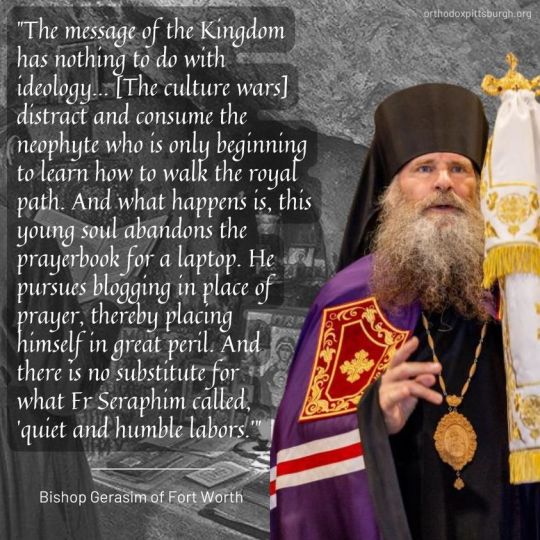
7 notes
·
View notes
Note
(whether you actually post this or not is up to you. On one hand my sad rant has some educational content, on the other hand I don’t want to scandalize Catholics or other prospective Catholics like myself)
“If you can’t find it there, ask your Catholic priests, bishops, nuns, and our Pope.“ All of whom mess up sometimes. All of whom have occasionally said things contrary to Catholic theological consensus and Tradition. The more and more I learn about Catholicism (I’ve been discerning conversion for years) and how exactly “official teachings” are promulgated, the more confused I become. The catechism and the words of priests are just the absolute bare basics. “Pop apologetics” sources are often full of garbage (secularly influenced garbage at that). Even books marked Nihil Obstat and Imprimatur only mean “this one bishop approves” not “the whole Church, Scripture and Tradition approves”, and cannot be blindly obeyed. I am very confused, your Church, as much as I admire it, is frankly horrible at catechesis (granted it’s still better than my natal Church). Apparently your Church has been “in crisis” regarding catechesis for generations now. Even those who are earnestly trying and devout still have occasionally said questionable things regarding the nature and licitness of certain things. The more I learn, the more conflicted I become.. God have mercy on all of us.
Well, you aren’t wrong. The Catholic Church does have a problem with catechizing people. That’s why a lot of people have left the Catholic faith and why a lot who do claim to be Catholic go about their lives believing in other ideals (for example, President Biden seeming to be pro abortion). So many of us just don’t understand fully our faith. Half of Catholics believe in the true presence of Jesus Christ body, blood, soul, and divinity in the Eucharist. Without understanding the basics, without respecting Jesus through Transubstantiation in the Eucharist, without seeking to constantly learn, one can easily fall away and become disconnected, to be come lazy, to be lead astray and by doing so, perhaps without our knowledge, can make others leave. With Catholicism though, you don’t have to know everything in order to become Catholic. It takes time to learn and to discover the beauty of the faith is a treasure. That is why I always encourage others to keep praying, keep learning, keep exploring, keep connected with others and reach out to those seeking. Alone, we accomplish nothing. As the body of Christ together, we can learn our faith for what it truly is.
That’s why I want to learn my faith, my goal is not knowledge itself or any earthly thing, but my goal is to get to Heaven where I become a saint. No one is perfect but God alone. Our clergy is not God and we as lay people are not God either. We can learn our teachings and traditions through texts of the saints, the Catechism, and Bible. Some resources are better than others. I find the Good Catholic website to be amazing. Word On Fire is also very powerful. I also love watching old videos of Mother Angelica Live, of Fulton J Sheen, and newer ones like Explaining the Faith. Once we learn more and more, we can be spiritual mentors to others. We don’t have to become priests or nuns, but we can certainly be spiritual mentors as lay people. I’m 29 and I’m still learning my faith. It’s ok to have questions and reach out to others who have more knowledge. It is our way we seek out God, Who has reached out to us first. You don’t have to be perfect. I pray more of us feel excited to learn our faith and have respect for the Eucharist and each other.
4 notes
·
View notes
Text
The Augustine Institute and Ignatius Press Renew Catechesis in Completed Word of Life Curriculum
Denver, CO, June 10, 2024—As any catechist can attest, old models of passing on the Catholic faith to the next generation grow less effective by the minute. This generation desires new methods to learn the faith and be invited into a relationship with Jesus. To answer this need, Catholic publisher Ignatius Press united with the Augustine Institute, known globally for its dynamic Catholic content…

View On WordPress
0 notes
Text
Elevating Your Calling: Pursuing Catholic Masters Programs
For many Catholics, faith is a cornerstone of life. It shapes their values and aspirations. This desire to deepen their understanding and contribute more meaningfully to the Church often leads individuals to consider pursuing higher education. Catholic masters programs provides a unique opportunity to combine intellectual growth with a deeper exploration of the Catholic faith. Here you can explore how you can pursue online catholic graduate programs.
A Spectrum of Opportunities
Theology
This program focuses on the core tenets of Catholicism, exploring scripture, tradition, and contemporary theological thought. It equips individuals for roles in religious education, pastoral ministry, or further academic pursuits.
Liturgical Studies
This program focuses on the Church's liturgy, its history, theology, and practical application. Graduates can be instrumental in enriching parish liturgies and promoting a deeper understanding of the sacraments.
Catechetics and Ministry
Catholic masters programs equips individuals with the skills and knowledge to effectively share the Catholic faith with others. Graduates can find rewarding careers in catechesis, youth ministry, or adult faith formation.
Catholic Social Teaching
The program explores the Church's social teachings on issues like poverty, justice, and peace. Graduates can use their knowledge to advocate for social change and promote Catholic values in various settings.
Bioethics
This program examines ethical issues surrounding healthcare, particularly as they relate to Catholic beliefs. Graduates can guide ethical decision-making in hospitals, clinics, and other healthcare institutions.
This list is not exhaustive, and Catholic master's programs are available in many other fields, such as counselling, music ministry, and nonprofit management, all infused with a strong Catholic perspective.
The Advantages of Online Programs
For many individuals, especially those who work or have family commitments, the flexibility of online Catholic graduate programs is a significant advantage. These catholic masters programs allow individuals to learn at their pace from the comfort of their homes. Online catholic graduate programs often cater to working professionals and offer asynchronous learning formats that enables students to complete coursework around their existing schedules.
The Importance of Accreditation
When choosing a Catholic master's program, it's important to ensure the program is accredited by a reputable accrediting body recognized by the U.S. Department of Education. Accreditation ensures that the program meets academic standards and ensures the value of your degree.
Beyond the Classroom
While the academic rigor of Catholic master's programs is essential, the experience goes beyond the classroom. Many programs offer opportunities for spiritual growth and community engagement. This may include online retreats, virtual prayer groups, and connections with faculty and fellow students who share your faith journey.
Investing in Your Future
Ultimately, pursuing a Catholic masters program is an investment in your future and the future of the Church. It promotes intellectual growth, spiritual development, and equips you with the tools to serve your community in meaningful ways. As you being on this journey, remember, it's not just about acquiring knowledge; it's about deepening your relationship with God and using your gifts to build a stronger, more vibrant Church community.
Taking the Next Step
If you're considering a Catholic master's program, research institutions and programs that align with your preferences, interests and career goals. Most universities offering these programs have dedicated websites with detailed information on curriculum, faculty, and admissions requirements. Additionally, many Catholic dioceses and organizations offer financial aid and scholarships to support students pursuing graduate studies.
By pursuing a Catholic master's program, you elevate your calling and embark on a rewarding path of intellectual and spiritual growth. If you are looking for an online catholic graduate program, choose St. Bernards School of Theology and Ministry. They provide various programs for individuals, it includes graduate certificates, master's, distance learning online education, and many more. Considering the catholic master's program, one can enroll online easily in the course. However, the institution also provides admission for individuals looking to study on campus.
0 notes
Text
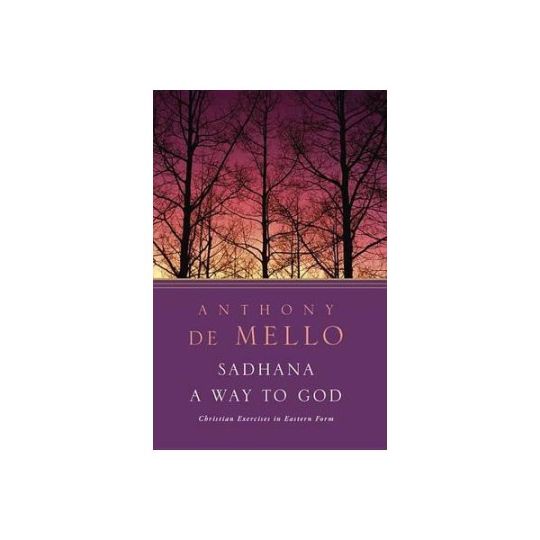
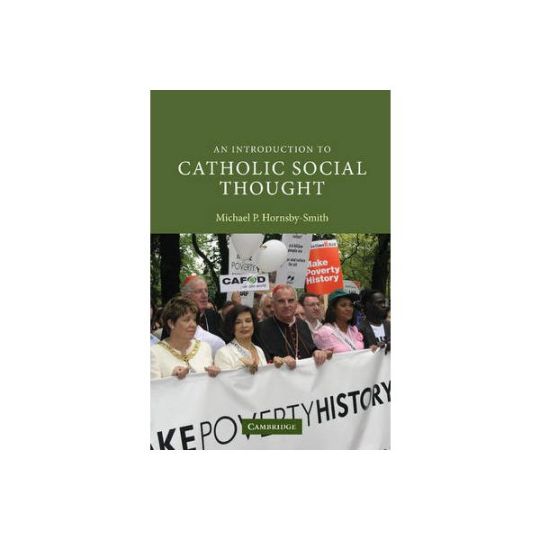

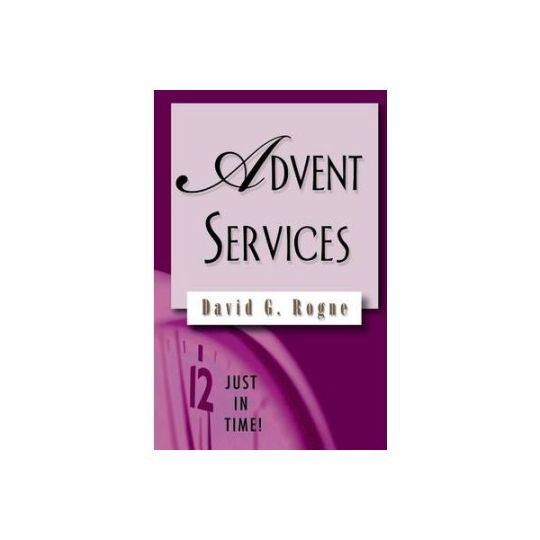

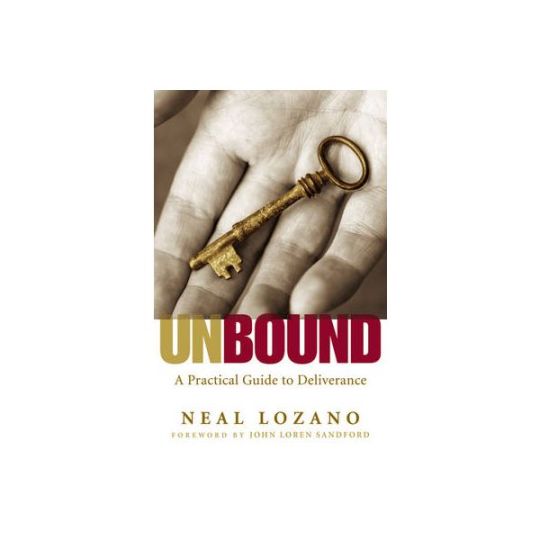



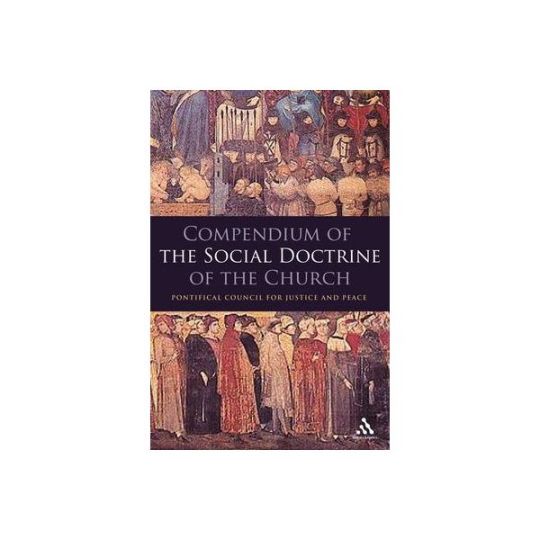



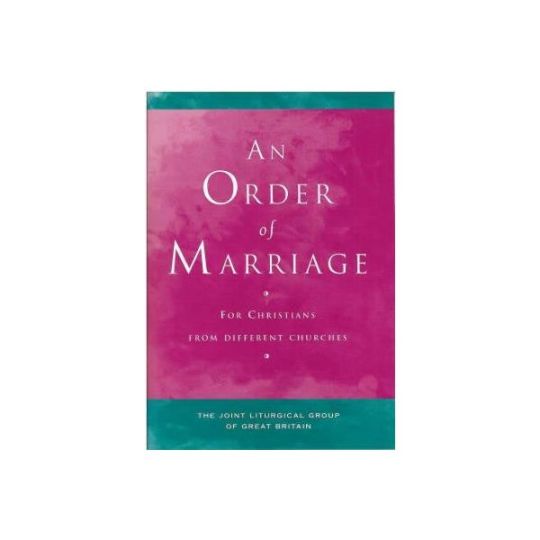





Discover Your Faith: Discover St. Paul's Treasure Trove of Christian Books
These titles cover various areas such as Christian books, Religious books, Lent, Easter, Advent and Christmas prayers and devotionals as well as Spirituality studies including Biographies, Histories, Catechesis of Catholicism as well as Christian art, Church architecture Family communities Societies Pastoral care Popes Popular Authors Blessed Virgin Mary Saints Priesthood Theology as well as any related subjects.
Description: Take an incredible spiritual journey with St. Paul's beautiful selection of Christian books! Our library provides an oasis of learning for every curious mind and spiritual seeker alike - whether you are an experienced follower looking to deepen their understanding or just starting your spiritual exploration, St. Paul's has all of the resources to pique your interest and illuminate your path.
Unveil the Significance of Sacred Seasons:
Immerse yourself in the reflective spirit of Lent and Easter's triumphant joy with insightful books that explore sacrifice, renewal, and their glorious resurrection.
Prepare your heart for the magic and wonder of Christmas and Advent by immersing yourself in captivating narratives and insightful contemplations on Christ's birth.
Strengthen Your Connection to the Divine:
Build a deeper prayer life with captivating devotional books that offer daily guidance and inspiration to deepen reflection and prayerful communion with God.
Set sail on an engaging exploration of Christian faith with thought-provoking titles that explore mysticism, contemplative practices, and discovering meaning in your spiritual journey.
Acquire Knowledge and Increase Understanding:
Unlearn the complexity of Scripture with insightful Bible studies and commentaries, and gain a better appreciation for its relevance.
Learn about fascinating figures and pivotal moments from Christian history with informative biographies and historical accounts.
Discover a World of Christian Resources:
St. Paul's offers an eclectic selection of books for every interest imaginable, such as:
Catechesis: Find engaging resources that provide an accessible introduction or refresher of Christianity for anyone new or revisiting their faith.
Explore the Catholic Church: Delve into its rich tradition and history of Catholicism to gain greater insight.
Christian Art and Church Architecture: Explore the beauty and symbolism inherent in Christian artistic creations and architectural marvels, unpacking their hidden meanings.
Family, Community and Society: Discover Christian perspectives on navigating obstacles and building strong, supportive communities. Unlearn how your faith can assist in creating more fulfilling lives for you and others around you.
Pastoral Care: St. Paul's offers resources designed to guide and support those traveling spiritual journeys - whether facing challenges of their own or simply looking for encouragement.
Gain from World-Recognized Leaders and Figures:
Books by Popes and Renowned Christian Authors: Gain wisdom and insights from leading Christian figures by studying their perspectives and teachings to deepen your knowledge of faith. Discover Devotion and Inspiration:
Discover the life and significance of revered figures in Christian tradition such as Mary, Jesus and Saints - drawing strength from their stories and undying devotion - such as The Blessed Virgin Mary and Saints. decouvr Priesthood and Depths of Theology:
Priesthood: Resources are available for anyone interested in the priesthood as an vocation or curious about how priests fit within Christian belief systems.
Academic Theology : These extensive works offer in-depth explorations into Christian theology for those seeking an expanded knowledge. Ideal for scholars or those passionate about exploring their faith more intellectually.
Share the Gift of Faith: Christian books from St. Paul's collection make meaningful and inspiring presents on any special occasion, spreading faith throughout your loved ones while exploring our extensive collection.
St. Paul is Devoted to Your Spiritual Growth:
St. Paul's recognizes the power of Christian literature to transform lives. Let our carefully selected collection help guide your spiritual journey.
Are you ready for an intriguing journey into Christianity? Explore St. Paul's Christian book collection now!
Link to St Paul's Christian Books: http://stpauls.org.uk/book
#Bible study#Christian fiction#Christian non-fiction#Christian classics#Christian education#ministry#apologetics#counseling#ethics#meditation#mysticism#church resources#devotionals#theology#Advent#commentaries#catechesis#Catholic history#Christian art#church architecture#Easter#family Christian living#Lent#pastoral care#priesthood#saints#social justice Christianity.
0 notes
Text
“Dear priests and all who assist in parishes! I urge you to do everything possible to make the parish an "spiritual community" for people - a great family where we also experience the even greater family of the universal Church, and learn through the liturgy, through catechesis and through all the events of parish life to walk together on the way of true life.”
- Pope Benedict XVI, CELEBRATION OF VESPERS - Cathedral of Munich, 10 September 2006
9 notes
·
View notes
Text
One could only know what one remembered. As a result, memorizing--or learning by heart--was (and remains) an important discipline connected to catechesis. ~Charles P. Arand, "Introduction to the Ten Commandments" in Luther's Large Catechism with Annotations and Contemporary Applications, 77.
0 notes